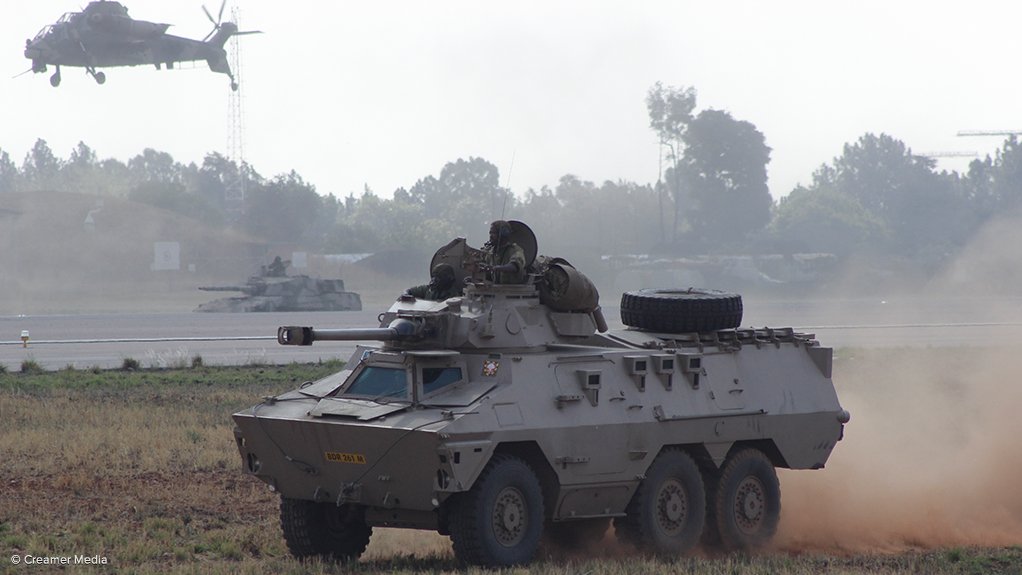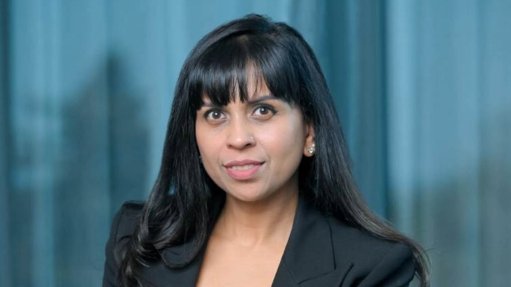Denel briefs Parliament Public Enterprises Portfolio Committee on its restructuring
The senior management of State-owned defence industrial group Denel presented, on Wednesday, to the Parliamentary Portfolio Committee on Public Enterprises, an update on the restructuring plan for the group. This restructuring was essential to enable a sustainable future for Denel, which had come close to collapse in recent years and had survived only because of substantial injections of Government funds.
The plan, to turn the group around, was, interim Group CEO Mike Kgobe explained to the Committee, to reduce costs and increase revenues (in particular, to reduce its unit costs to allow it to both price its products competitively and ensure favourable margins); employ performance-oriented staff; increase and diversify its customer base; ensure an effective supply chain; optimise (including streamlining) its planning and production processes; and establish partnerships and joint ventures, both locally and internationally. With regard to the optimisation of the group’s processes, he pointed out that Denel needed a new business model.
The group was now being restructured into that new business model. Its previous six business divisions were being restructured into four. These were Guided Weapons, Landward Capabilities, Air Capabilities, and Integrated Systems. Further, the group was adopting a “shared services” administrative model, with key support functions, such as financial services, human resources, legal, communications, information and communications technology, risk/safety, health, environment and quality management, supply chain and communications, to be provided centrally for all the divisions.
As for the new business divisions, Guided Weapons would be responsible for the production and support of guided missiles and precision guided munitions (popularly called smart bombs). Landward Capabilities would encompass the capabilities of three previous divisions, and be responsible for infantry weapons and other equipment, artillery, armoured vehicles, mechatronics, small arms ammunition, and medium calibre ammunition, production and support. Under Air Capabilities would fall aircraft and aeroengine maintenance, repair and overhaul; the integration and upgrading of aircraft systems; the Rooivalk helicopter; uncrewed aerial vehicles (popularly called drones, these had previously been grouped with missiles in Denel Dynamics, but were a category of aircraft); the world-class aerospace Overberg Test Range; and other aerospace products and support. Integrated Systems covered both military and civil, defence and security, complex integrated systems, including the South African Army’s ground-based air defence system and both defence and civil cyber security systems.
Denel had exited, or was in the process of exiting, businesses identified as non-core. These were de-mining specialists Mechem, protected vehicle manufacturer LMT, and drive train company Gear Ratio. It had also exited insurance business Densecure, the Denel Medical Benefits Trust, and Spacetech (which had been transferred to the Department of Science and Innovation). Further, it had ceased the manufacture of aerostructures.
Of its subsidiary companies, it was retaining its 49% share in Rheinmetall Denel Munition and its 49% share in United Arab Emirates-based Barij Dynamics, but was in the process of selling its 30% share in Hensoldt Optronics (this was awaiting Public Finance Management Act approval).
Denel was also rationalising its property portfolio. At its Kempton Park site, it was reorganising its operations to use less space, to allow more property to become available for renting, thereby increasing group income. The same process was under way at its Irene site. All operations that had been undertaken at its Benoni site had been transferred to its Lyttleton site and the Benoni site would be sold.
Article Enquiry
Email Article
Save Article
Feedback
To advertise email advertising@creamermedia.co.za or click here
Announcements
What's On
Subscribe to improve your user experience...
Option 1 (equivalent of R125 a month):
Receive a weekly copy of Creamer Media's Engineering News & Mining Weekly magazine
(print copy for those in South Africa and e-magazine for those outside of South Africa)
Receive daily email newsletters
Access to full search results
Access archive of magazine back copies
Access to Projects in Progress
Access to ONE Research Report of your choice in PDF format
Option 2 (equivalent of R375 a month):
All benefits from Option 1
PLUS
Access to Creamer Media's Research Channel Africa for ALL Research Reports, in PDF format, on various industrial and mining sectors
including Electricity; Water; Energy Transition; Hydrogen; Roads, Rail and Ports; Coal; Gold; Platinum; Battery Metals; etc.
Already a subscriber?
Forgotten your password?
Receive weekly copy of Creamer Media's Engineering News & Mining Weekly magazine (print copy for those in South Africa and e-magazine for those outside of South Africa)
➕
Recieve daily email newsletters
➕
Access to full search results
➕
Access archive of magazine back copies
➕
Access to Projects in Progress
➕
Access to ONE Research Report of your choice in PDF format
RESEARCH CHANNEL AFRICA
R4500 (equivalent of R375 a month)
SUBSCRIBEAll benefits from Option 1
➕
Access to Creamer Media's Research Channel Africa for ALL Research Reports on various industrial and mining sectors, in PDF format, including on:
Electricity
➕
Water
➕
Energy Transition
➕
Hydrogen
➕
Roads, Rail and Ports
➕
Coal
➕
Gold
➕
Platinum
➕
Battery Metals
➕
etc.
Receive all benefits from Option 1 or Option 2 delivered to numerous people at your company
➕
Multiple User names and Passwords for simultaneous log-ins
➕
Intranet integration access to all in your organisation





















